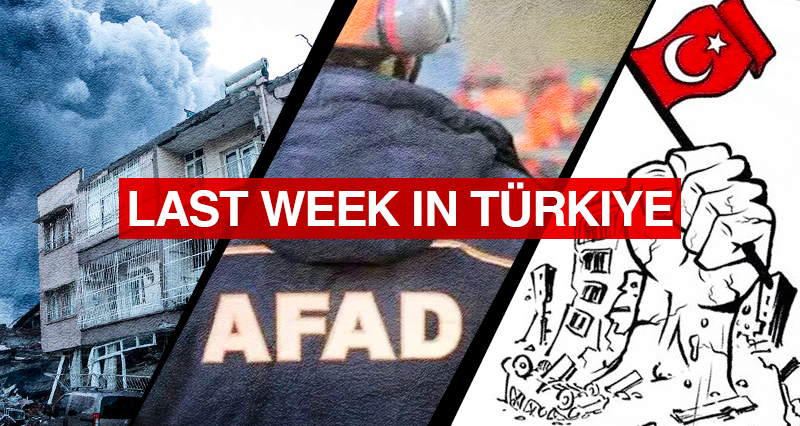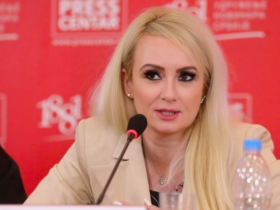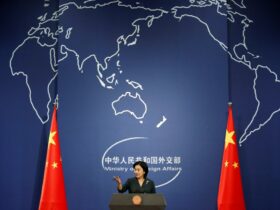The country was hit with two very severe earthquakes last week. Therefore it was a very rough week for the Turkish public.
The only agenda among the public was around the earthquake, its consequences and outcomes.
Devastating earthquakes that hit southeastern Türkiye
On February 6th, two catastrophic earthquakes struck southern and central Türkiye, as well as northern and western Syria. The first shock occurred in the Pazarcik district of Kahramanmaras province at 04:17 AM, with a magnitude of 7.9 on Richter’s scale.
A second shock occurred nine hours later in Elbistan District of Kahramanmaras. It was recorded to be the strongest earthquake in Türkiye since the 1939 Erzincan earthquake. The earthquake is the deadliest in modern Turkish history with – until now – 35,410 deaths and 105,500 injured in Türkiye.
The shockwave was felt as far as Egypt, Israel, Palestine, Lebanon, Cyprus, and the Black Sea coast of Türkiye.
The earthquakes also hit parts of northern Syria and killed 5,700 people with another 14,500 injured. The shocks hit amidst a winter storm, which hampered rescue efforts, dropping snow on the ruins and bringing plummeting temperatures.
Due to the freezing temperatures in the area, survivors, especially those trapped under rubble, were at a great risk of hypothermia. The earthquake is estimated to have caused US$84.1 billion worth of damage, making it the fourth-costliest earthquake on record.
At least 13.5 million people and 4 million buildings have been affected. Some of those trapped livestreamed their pleas for help on social media.
The earthquake caused broad fissures on roads and heavy damages on railroads, pipelines and communication infrastructure. Liquefaction took place at Iskenderun, flooding the town with seawater. A fire also took place in the port of Iskenderun, which took several days to be brought under control.
Airports at Adana, Malatya and Hatay Provinces were closed due to heavy runway damage. The Cathedral of the Annunciation, seat of the Roman Catholic Apostolic Vicariate of Anatolia, was almost completely destroyed. Diyarbakir Fortress, a UNESCO World Heritage Site, was also partly destroyed, while damage was also reported in structures at the adjacent World Heritage Site of Hevsel Gardens. In Sanliurfa, reports said structures around the Pool of Abraham were damaged.
Those confirmed deceased included MP Yakup Tas, Malatyaspor goalkeeper Ahmet Eyup Turkaslan, and Saul Cenudioglu leader of the Jewish community in Antakya, who died along with his wife Fortuna. Former MP Sitki Guvenc died from earthquake injuries on 9 February. Most of the squad and coaching staff of the local football club Hatayspor were trapped in the collapse of their headquarters in Hatay before being rescued, but sporting director Taner Savut is still under the rubble.
The national government declared a level four alert alongside a nationwide mourning for 7 days. According to the Disaster and Emergency Management Presidency (AFAD) 25,000 search and rescue personnel were dispatched to the 10 affected provinces. At least 70 countries offered to help in search and rescue operations.
An “air aid corridor” was established by the Turkish Armed Forces to mobilize search and rescue teams. Türkiye sent an official request to NATO and other allies for assistance.
President Recep Tayyip Erdogan said on Twitter, “search and rescue teams were immediately dispatched” to the affected area. Interior Minister Suleyman Soylu urged residents to refrain from entering damaged buildings. On 7 February, President Erdogan declared a 3-month state of emergency in the 10 affected provinces: Adana, Hatay, Osmaniye, Kahramanmaraş, Gaziantep, Kilis, Şanlıurfa, Adiyaman, Malatya and Diyarbakır.
The collapse of many newly constructed buildings during the earthquakes caused a public outrage and doubts about the Turkish construction and contracting industry following seismic codes, even though Erdogan had claimed that “98% of the destroyed buildings were built in before 1999” and described it “as the indicator of an improvement in the quality of building codes and enforcement”.
The government had provided periodic “construction amnesties” that are effectively legal exemptions for the payment of a fee, for structures built without the required safety certificates or those that deviated from original licensed designs, often by adding additional floors.
Videos showing Erdogan previously boasted letting builders avoid earthquake codes went viral on social media.
In Adiyaman, the local population met the Minister of Transport and Infrastructure Adil Karaismailoglu and Governor Mahmut Cuhadar with protests. Their car was kicked by the protesters during their departure.
The leader of the opposition in Parliament, Kemal Kilicdaroglu of the CHP, pinned responsibility on the scale of the disaster on President Erdogan. He demanded from the CHP mayors not to back down from providing breads and blankets to the ones in need and to not accept a bureaucratic blocking as they did during the Covid 19 lockdown.
Questions also arose as to how an “earthquake tax” (officially “special communications tax”) levied by the Turkish government in the wake of the 1999 earthquake, estimated to have reached 4.6 billion USD and meant to have been spent on disaster prevention and the development of emergency services, was being spent, given how the government has never given a public explanation.
AFAD, the main state organ for the disaster relief, has been criticized on the grounds of claimed slowness to react and inadequate help during the first days of the earthquake.
Another criticism was the very late deployment of military resources. They were not mobilized for two days after the earthquake, and even then in what many considered in very modest amounts. In the past, usually local commanders were authorized to go into action on their own initiative in the face of such a natural disaster until the current government changed the regulations.
The decision to block access to Twitter for about 12 hours from 8 to 9 February, while people scrambled to find loved ones after devastating earthquakes compounded even a greater public frustration at the pace of relief efforts.
Opposition leaders and social media users criticized the throttling of the platform, which has helped people share information on arriving aid and the location of those still trapped in rubble after the initial tremor on Monday. President Tayyip Erdogan’s government had blocked social media in the past and focused in recent months on fighting what it calls “disinformation”, which it said prompted the block on Wednesday.
On 9 February, the Minister of Justice, Bekir Bozdag, said a judicial investigation into the collapse of buildings was opened. Bozdag said: “Those who have negligence, faults and those responsible for the destructions after the earthquake will be identified and held accountable before the judiciary”. Nearly 150 local prosecutors were authorized to establish units to investigate contractors, surveyors and other experts linked to the collapsed buildings.
There is also a debate on whether the presidential elections, unofficially scheduled for May 14th, would be postponed or not. President Erdogan has asked for “one year to heal all wounds” which was interpreted as a postponement of the elections.
Bulent Arinc, Türkiye’s former deputy prime minister and an Erdogan ally, called for the elections to be postponed “immediately” on Monday.
“Elections cannot be held either in May or June. The elections must be postponed immediately in order for our state bureaucracy to focus on healing the wounds of our citizens,” Arinc said in a statement on Twitter.
However the opposition reacted by stating it would be unconstitutional to postpone the elections, which can only be possible at war.
On the other hand this disaster has caused some diplomatic tensions to be relieved, and some borders to be opened for humanitarian aid. Borders with Armenia and Syria were opened for the transportation of humanitarian aid, while messages of solidarity were given between Greece, Israel and Turkiye.
Foreign Minister Mevlut Cavusoglu said on February 12th that Türkiye has offered to open two more border gates from the southern province of Kilis to northern Syria and that the United Nations is considering the proposal.
“We have two border crossings in Kilis, which are primarily used for transportation to areas liberated from terrorists. We told the U.N. that these two crossings could be opened as well, and they are now assessing it,” Cavusoglu said at a press conference with Greek Foreign Minister Nikos Dendias in the southern province of Hatay.
Vatan Party leader Dogu Perincek has criticized the opposition’s negative attitude, as well as the cartoon published by Charlie Hebdo. There are some articles and images being published throughout the entire imperialist media. That also includes the infamous cartoon magazine. ‘There is no need to send in tanks, we are already destroying Türkiye with an earthquake. We were planning to send tanks and jets. Now we destroyed it with an earthquake’ the cartoon indicates. The pro-American forces only blame the state when it is facing against an earthquake. ‘There is no state, no police, no soldiers, no blankets, no heating, no food’ they say, with no shame”.

















Leave a Reply